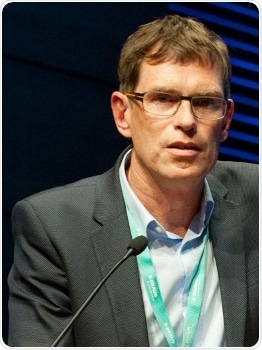From News Medical
Oct 3 2018
The facts speak for themselves - Sepsis is one of the most common diseases worldwide and the leading cause of death in infectious diseases with a mortality of 30 to 60 percent - often because it is not detected early enough.
Many patients come to the ER with infection-like or very nonspecific symptoms, and some develop infection after surgery or severe trauma.Especially bacterial infections can spread to the bloodstream, causing systemic infection and a runaway immune response that we call sepsis. This serious, sometimes even life-threatening condition is responsible for the deaths of more patients than AIDS, prostate and breast cancer combined.
Sepsis is often difficult to detect, especially at an early stage, and represents a significant diagnostic challenge for emergency departments and intensive care units. If sepsis remains undetected for too long or effective antibiotic therapy and circulatory stabilization are not initiated quickly enough, the disease can rapidly lead to additional organ failure or even cause a septic shock. The lethality of sepsis and septic shock may be up to 50%; With a delay in antibiotic therapy and herd remediation, mortality rates increase rapidly.
In this webinar Dr. med. Matthias Gründling the various aspects that are to be considered for the diagnosis and treatment of emergency sepsis.
Presenter

Dr. Matthias Gründling
Senior Physician in Intensive Care Medicine and Head of the Quality Management Project "Sepsisdialog"
Clinic and Polyclinic for Anaesthesiology and Intensive Care Medicine of the Ernst Moritz Arndt University Greifswald
Dr. med. Matthias Gründling is a senior physician in intensive care at the Department of Anaesthesiology and Intensive Care Medicine of the Greifswald University Medical Center. He has been working scientifically for years on issues of infections and sepsis in intensive care patients. As part of the competence network Sepsis (SEPNET), he heads the Regional Center Greifswald and was involved in the internationally recognized studies of the network. Dr. med. Gründling is a member of the Guideline Commission of the German Sepsis Society eV at the University Medical Center Greifswald heads the quality management project "sepsis dialogue", which in recent years has led to a significant improvement in the quality of treatment of sepsis patients at the Greifswald Clinic. Due to its success, the working group of the SEPSISDIALOG won the GLOBAL SEPSIS AWARDS 2017.